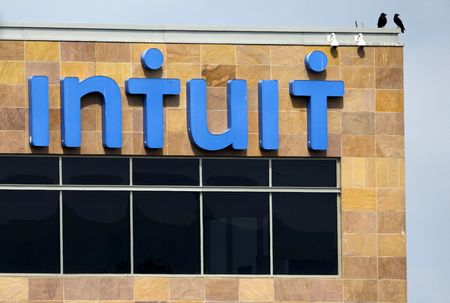 1
1 1
1

By Jonathan Stempel
NEW YORK (Reuters) -Intuit Inc agreed to pay $141 million in restitution to settle claims by all 50 U.S. states and Washington, D.C., that it tricked millions of customers into buying online TurboTax products that the company deceptively advertised as “free.”
Wednesday’s settlement resolves claims that Intuit steered at least 4.4 million customers, many with low incomes, into buying its tax preparation products despite their being eligible for free electronic filing through the Internal Revenue Service (IRS).
The settlement also calls for the largest U.S. online tax preparer to suspend ads containing slogans such as “TurboTax Free is free. Free free free free.”
Intuit offers two free versions of TurboTax: an IRS Free File version meant for lower-income people and military personnel, and a commercial product called TurboTax Free Edition for people with “simple” returns.
The states said that beginning in 2016, Intuit steered customers eligible for IRS Free File into using TurboTax Free Edition, only to later tell them they needed to pay $59.99 or more to file because their returns were not simple.
Intuit withdrew from the IRS Free File program last July.
“For years, Intuit misled the most vulnerable among us to make a profit,” New York Attorney General Letitia James said in a statement. “Today, every state in the nation is holding Intuit accountable.”
New York and Tennessee led the state probe.
Intuit, based in Mountain View, California, admitted no wrongdoing and expects “minimal” impact to its business.
Intuit General Counsel Kerry McLean said the accord also addresses claims in a related U.S. Federal Trade Commission (FTC) lawsuit, making that case “entirely unnecessary.”
The FTC declined to comment.
It had sued Intuit on March 28 over its ads, saying about two-thirds of tax filers, including gig workers and people with farm income, could not use free TurboTax products.
In morning trading, Intuit shares were down $10.93, or 2.5%, at $419.91.
(Reporting by Jonathan Stempel in New York; Additional reporting by Diane Bartz in Washington, D.C.; Editing by Chizu Nomiyama and Aurora Ellis)